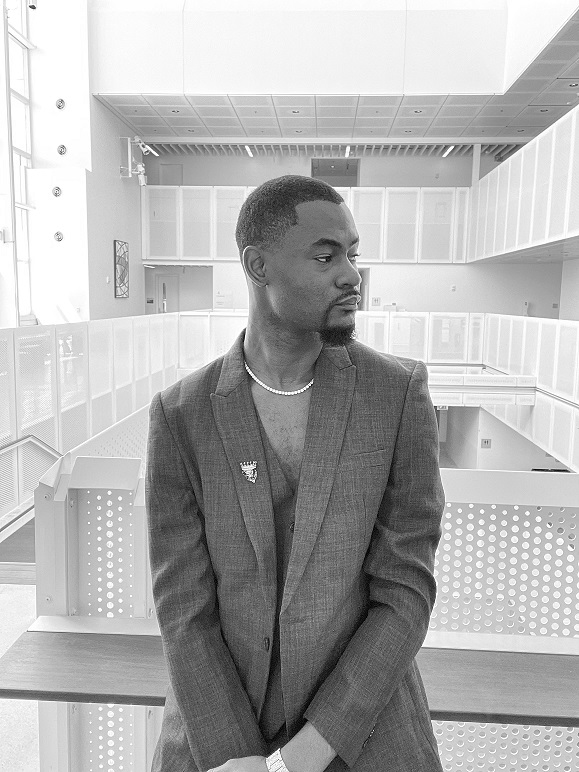Our top stories of 2023 are not so much our most-read pieces as they are the pieces that reflect the range of subjects we covered in the year, and that we therefore recommend, in case you missed reading them. They show our deep work in finding untold stories, contextualizing developments in African literature and Nollywood, and highlighting the shapers of industries. Individually and collectively, they, like our other longform stories before them, dismantle patronizing expectations of African media stories — the suggestion that “we are not there yet” — and set new industry standards of quality, depth, and originality. These, dear reader, define our third year.

Longform Profiles & Artists’ Stories

Cover Story: Rita Dominic’s Visions of Character
Since she erupted in The Meeting, playing against type as a hilariously antagonistic receptionist, the superstar has embodied complex women, including a soldier’s wife in ’76 and a bewitching singer in La Femme Anjola. Now, 25 years into her career, she is Nollywood’s most critically acclaimed actor, and Open Country Mag‘s first film cover star. But where does she draw from to inhabit these women?
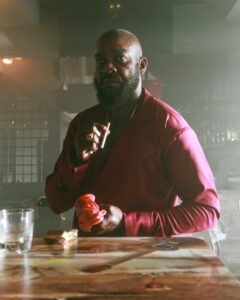
The Epic, Transformative Comeback of Chidi Mokeme
A long career playing playboys and villains, including a soldier in ’76 and real-life robber Monday Osunbor, set him apart as an intriguing supporting act. But after a moment of personal adversity, he dug deep and returned in Shanty Town — a domineering leading turn unlike any other we have seen in Nollywood.
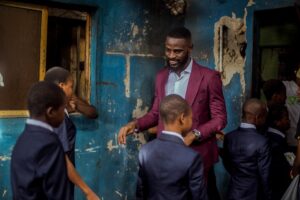
The Communal Fates and Faith of a Chess Master
In five years, Chess in Slums Africa brought hope to thousands of children and became a charity phenomenon. But to get there, its founder Tunde Onakoya had to survive terrors. “It’s the kind of things that you see in movies, and you’re, like, this is really bad,” he said, “but then you’re seeing it, the actual reality, the real consequences of poverty.”

Cover Story: How Leila Aboulela Reclaimed the Heroines of Sudan
The widest-read contemporary Sudanese writer is retrieving from history the stolen spaces of her country’s women, and bringing nuance to an image of Islam. In a time of war, her fiction expands a national consciousness.

A Poet’s Walk of Pain Ends, Finally, in Acclaim
Before his manuscript won the 2022 Sillerman Prize, Tares Oburumu faced seemingly interminable hardship in his personal life. “The act of survival, for me, is a lot more inspirational than anything,” he said, “trying to put yourself in a place where there’s no place for you.”

The Overlapping Realisms of Eloghosa Osunde
In their debut novel-in-stories Vagabonds!, the Nigerian writer and visual artist pursues an alternate reality of their mind, taking on, among other subjects, social normalcy, gender, and queerness.

This evergreen story, produced under Folio Nigeria’s CNN affiliation and republished under our partnership, follows an artist as she gives a glint of the longheld secrets of the famed Akwete cloth, once a local luxury.
Features
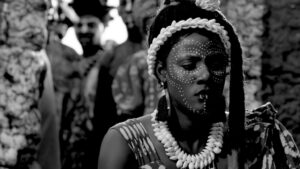
How Mami Wata Swam to Sundance
The fantasy revenge thriller is Nigeria’s first indigenously produced film to go to Sundance, a first it already notched at Venice. “We tapped into something beyond us while making this one,” said producer Oge Obasi. “Hopefully, that opens more doors for Nigerian filmmakers,” said director C.J. Obasi. (We published this in December 2022 but the film gained traction with its release in 2023. It went on to be Nigeria’s submission for the 2024 Academy Awards.)

“You Have to Celebrate Writers While They’re Alive”: Labone Dialogues Is the Year’s Big Event in African Literature
Headlined by a quartet of feted veteran voices in Wole Soyinka, Aminatta Forna, Jennifer Makumbi, and Chris Abani, NYU Accra’s 30-author symposium is a convergence of inspiration. “We have to tell our own story,” said convener and school director Chike Frankie Edozien.
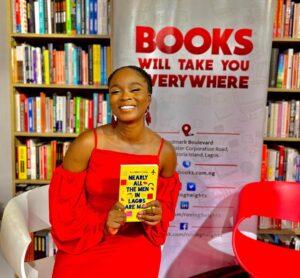
How Damilare Kuku Topped Nigeria’s First Ever Bestseller List
Nearly All the Men in Lagos Are Mad, the actress’ debut collection of stories, sold over 2,200 copies, assuring it the No. 1 spot on The Rovingheights Bestseller List: Presented with Open Country Mag. So why do these stories of failing romance connect so widely?

With God’s Children Are Little Broken Things, Arinze Ifeakandu Garners Breakout Acclaim
Ahead of its release in Nigeria, the collection about gay men just won the inaugural Republic of Consciousness Prize for the US and Canada: a highlight in a series of recognition from the Kirkus Prize, the Dylan Thomas Prize, the Story Prize, and the Lambda Awards. (He went on to win the Dylan Thomas Prize.)
New Writing & Book Excerpts

“‘Our Literature Has Died Again’: Nigerian Writing in the Era of the Nomadists”
As conversations sethe about the “death” of Nigerian literature and the loss of authenticity in its poetry, the writer Kanyinsola Olorunnisola counters for the growing japa-MFA subculture: “I call them the Nomadic Generation because of their complication of nationalism.”
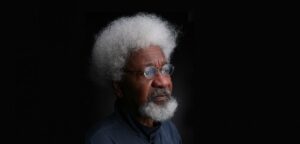
“Friendship, to Me, Is What Saves One’s Sanity”: Wole Soyinka
In this excerpt from Sarah Ladipo Manyika’s Between Starshine and Clay, the Nobel laureate and his friend Henry Louis Gates, Jr. remember another friend: the late Toni Morrison.
Interviews

Binyavanga Wainaina’s Great Scatter of Work (Exclusive)
How to Write About Africa gathers vivid, powerful essays and fiction by the late Kenyan icon. Its editor Achal Prabhala talks compiling it, a second posthumous book, and an uncompleted novel. “Much is made of what he did for other writers, but it was his own writing that did it for me,” he said.
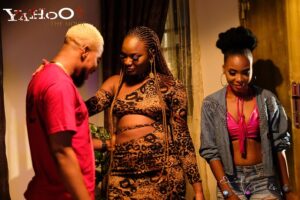
“It’s the Fact That We Did It Our Own Way”: How Yahoo+ Captured a Desperate Side of Internet Fraud
Director, producer, and screenplay writer Ebuka Njoku and producer Lorenzo Menakaya on their professional journeys and the making of their Netflix No. 1 hit.

A Muslim Highlife Pioneer, and ‘70s Star, Returns for Legacy
Alhaji Waziri Oshomah fused Highlife, local folk styles, and Western pop into songs of positivity in Auchi, Nigeria. When New York label Luaka Bop released The Muslim Highlife of Alhaji Waziri Oshomah in its World Spirituality Classics series last year, we spoke to musician and label about his artistry.

From Dreams of Music, Football, & TV, a Media Executive Sets His Style
As Paramount’s Country Director for Nigeria, Bada Akintunde-Johnson wants to model a new mode of business and creative leadership. “You can’t exert the highest possible positive influence on people without connecting with them on a deep personal level,” he said in this extensive interview — the first in our Leaders of Industries Series.

Sarah Ladipo Manyika Is Curious About Culture Icons
In Between Starshine and Clay, the novelist interviews Toni Morrison, Michelle Obama, and Wole Soyinka, among other major Black figures in the arts and politics. “One of the things that was the most surprising was the actual extent to which they forged their own path,” she said.

Caleb Azumah Nelson on Small Worlds, Open Water, and Black Spaces
In two novels, the British Ghanaian writer and photographer has enlarged his terrain from love and art to family and memory. “I wanted to take my sentences past this thing of knowledge and more toward feeling,” he said. “It feels like a progression in the questions I’m asking, specifically around identity and Blackness, but, really, around love.”
We hope you enjoy revisiting these.

If you love Open Country Mag‘s work, please consider making a PayPal donation to enable us to continue redefining perceptions of what an unfunded African media platform can do.
Please forward this newsletter, so that more people could subscribe to Open Country Mag for the essential, in-depth stories in African literature and Nigerian film.
Follow us everywhere at @OpenCountryMag: Twitter, Instagram, Facebook, and LinkedIn!


